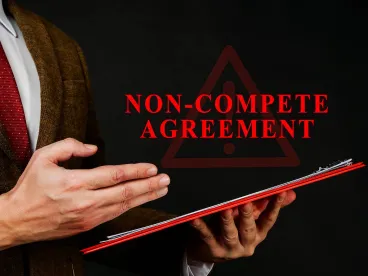Following the National Labor Relations Board’s (“NLRB”) highly-controversial decision in McLaren Macomb declaring most confidentiality and non-disparagement clauses in separation agreements to be unlawful, General Counsel Abruzzo this week declared her intention to seek to invalidate nearly all post-employment non-compete agreements, in a memorandum stating her prosecutorial position that “the proffer, maintenance, and enforcement” of non-compete agreements violates the Act.
The General Counsel argues that, with extremely limited exception, any agreement that limits future employment interferes with Section 7 rights under the National Labor Relations Act. She argues that these clauses improperly deny employees the ability to quit or change jobs by cutting off their access to alternative employment opportunities. As a result, this prevents employees from:
- concertedly threatening to resign to demand better working conditions;
- carrying out concerted threats to resign or otherwise concertedly resigning to secure improved working conditions;
- concertedly seeking or accepting employment with a local competitor to obtain better working conditions;
- soliciting co-workers to work for a local competitor as part of a broader course of protected, concerted activity;
- and seeking employment, at least in part, to specifically engage in protected activity with other workers at an employer’s workplace.
The only identified exceptions to this rule, in the General Counsel’s opinion, are agreements that relate to limiting individuals’ managerial or ownership interests in a competing business, or agreements that restrict independent-contractor relationships (neither of which involve future “employment”). The memo states that there may be other circumstances in which a narrowly tailored non-compete agreement’s infringement on employees’ rights is justified, but did not elaborate on what those circumstances may be.
Key Takeaways
- The NLRB has not yet ruled on the General Counsel’s theory. But, given this very public announcement, employers relying on non-compete agreements can expect a slew of unfair labor practices challenging the agreements.
- Since the Board only has jurisdiction over “employees” as defined by the Act, this memo has no impact on non-compete agreements for managers and supervisors who are excluded from the scope of Section 7. But, importantly, this memo affects employment relationships with union and non-union employees.
- This is just one of many efforts to limit the use of non-compete agreements. For example, some states already restrict or prohibit the provision of non-compete agreements to low-wage and middle-wage workers, and just a few months ago, we saw the reintroduction of the Workforce Mobility Act, that seeks to prohibit the use and enforcement of post-employment non-competition agreements. Further, at the beginning of the year, the FTC proposed an expansive new rule which would impose a near-complete ban on the use of non-compete agreements by employers.







 />i
/>i

